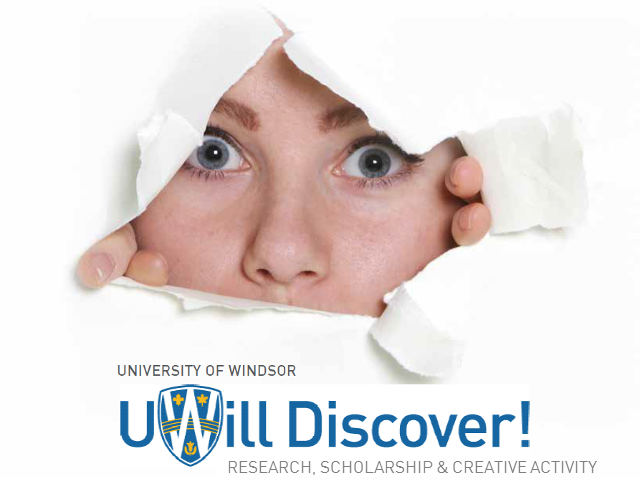Type of Proposal
Performance (Music, Dance, Dramatic Art, etc.)
Faculty
Faculty of Arts, Humanities and Social Sciences
Faculty Sponsor
Lionel Walsh
Proposal
The lost acting style known as Fantastic Realism follows in the traditions of internationally renowned actor Michael Chekhov and was established in early 20th Century Russia. The term was coined by Yevgeny Vakhtangov, Chekhov’s colleague, and by this he meant that Chekhov’s acting was inspired by images beyond the mundane—images from nature, architecture, and myth. Vakhtangov went on to experiment with this style of acting, developing principles and goals, and refusing the more standard style of Naturalism. Further, rejecting Stanislavski’s ‘conscious route to the subconscious’, Vakhtangov believed that Fantastic Realism afforded the actor a ‘subconscious route to the subconscious’, allowing for a more organic and visceral approach. While Vakhtangov’s notes on his experiments in Fantastic Realism are extant, he did not record his actual method for activating the process—we have no record of his exercises with his cast. The student researchers, in conjunction with principal researcher, Lionel Walsh, are investigating an approach to rehearsal inspired by Vakhtangov’s writings on Fantastic Realism. Starting with the source material of the Michael Chekhov method and related scholarship, along with Vakhtangov’s notes contained in The Vakhtangov Sourcebook (edited by Andrei Malaev-Babel), we are creating psychophysical acting exercises in Fantastic Realism, and testing them with established scripts, as well as devised pieces, to research Vakhtangov’s potential process. The long-term goal is to create a system that allows the actor to research a role creatively and physically rather than relying on cold-hard intellect which some systems encourage. We have been conducting ongoing research on this topic for two years now and have established several effective, although preliminary, exercises that reflect the nature of our research. These discoveries have led to new rehearsal methods and are contributing to the growth and development of our artistic community. Our proposal is to demonstrate a short sequence of the exercises we have been intimately involved in creating in the Inspired Acting Lab (www.uwindsor.ca/inspiredactinglab). We will utilize scenes from established scripts combined with non-textual exercises to present our research.
Start Date
23-3-2018 10:35 AM
End Date
23-3-2018 11:55 AM
Location
Alumni Auditorium A
Fantastic Realism: Creating New Rehearsal Techniques for the Actor
Alumni Auditorium A
The lost acting style known as Fantastic Realism follows in the traditions of internationally renowned actor Michael Chekhov and was established in early 20th Century Russia. The term was coined by Yevgeny Vakhtangov, Chekhov’s colleague, and by this he meant that Chekhov’s acting was inspired by images beyond the mundane—images from nature, architecture, and myth. Vakhtangov went on to experiment with this style of acting, developing principles and goals, and refusing the more standard style of Naturalism. Further, rejecting Stanislavski’s ‘conscious route to the subconscious’, Vakhtangov believed that Fantastic Realism afforded the actor a ‘subconscious route to the subconscious’, allowing for a more organic and visceral approach. While Vakhtangov’s notes on his experiments in Fantastic Realism are extant, he did not record his actual method for activating the process—we have no record of his exercises with his cast. The student researchers, in conjunction with principal researcher, Lionel Walsh, are investigating an approach to rehearsal inspired by Vakhtangov’s writings on Fantastic Realism. Starting with the source material of the Michael Chekhov method and related scholarship, along with Vakhtangov’s notes contained in The Vakhtangov Sourcebook (edited by Andrei Malaev-Babel), we are creating psychophysical acting exercises in Fantastic Realism, and testing them with established scripts, as well as devised pieces, to research Vakhtangov’s potential process. The long-term goal is to create a system that allows the actor to research a role creatively and physically rather than relying on cold-hard intellect which some systems encourage. We have been conducting ongoing research on this topic for two years now and have established several effective, although preliminary, exercises that reflect the nature of our research. These discoveries have led to new rehearsal methods and are contributing to the growth and development of our artistic community. Our proposal is to demonstrate a short sequence of the exercises we have been intimately involved in creating in the Inspired Acting Lab (www.uwindsor.ca/inspiredactinglab). We will utilize scenes from established scripts combined with non-textual exercises to present our research.


